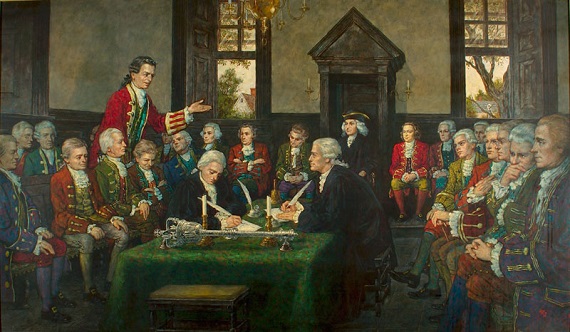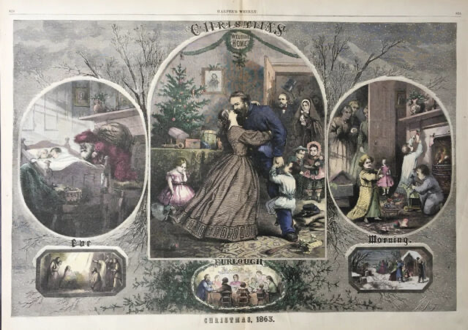When I was young, there was a very famous and much articulated saying, to wit: “I may disagree with what you say, but I will defend to the death your right to say it!” Everyone—or at least everyone who was rational, moral and decently educated—knew that this was the creed of a free society in general and “America” in particular. Admittedly, at times during even our history, this sentiment was more observed in the breach than in principle. Political correctness is not a new invention! But, on the whole, Americans have admitted to and acknowledged the right of unpopular views to be openly expressed especially in the Public Square. In fact, that sentiment is articulated in the first of the ten amendments to the United States Constitution that became known as the “Bill of Rights.”
Even more to the point, people did not necessarily become pariahs for holding views contrary to the current orthodoxy whatever that was. Charles Lindberg did not lose his status as a hero when he came out against the United States taking up arms against Germany in World War II. True, even Lindberg had to embrace “war fever” after Pearl Harbor, but many understood and sympathized with the Lone Eagle’s desire to avoid another European war even if his apparent sympathy with the Nazis was looked upon askance. Indeed, the above sentiment is most apt to go out of favor in times of war. When he was inaugurated, Abraham Lincoln used his office far beyond its constitutional powers when, among other things, he suspended habeas corpus and issued orders to arrest and incarcerate without due process over (it is believed) forty-thousand Northern citizens who disagreed with Lincoln’s war. Later—much later—it was acknowledged that Lincoln violated the Constitution far more than he adhered to what was supposed to be “the law of the land,” but most of those acknowledging that fact either excuse or applaud his actions. The fact is, whether we consider the United States or any other nation, empire or tribe, in times of war, there is very little sympathy for anything “unpatriotic” however legal, moral or just. As Judge Holt says in the film The Conspirator, “In time of war, the law is silent.” Sadly, this is not only wrong but evil simply because for all intents and purposes, when the law is most needed, it is not.
We now live in a time of triumphant political correctness in which we not only fail to defend unpopular speech, but we condemn that speech and those who utter it. Yet, this is also a very odd period because though we are immersed in several wars—including the ubiquitous “war on terror”—the fact is we do not condemn those who speak out against these wars, but rather, against those who voice certain ideas and viewpoints within the culture with which those purveyors of politic correctness disagree. Worse, it now seems that any viewpoint that does not embrace the totality of the agenda of those same purveyors are labeled with the most powerful weapon in their arsenal of censorship, the dreaded universal race card. For instance:
You do not accept the man-made origins of global warming? You are a racist!
You do not accept open borders and total amnesty for millions of illegals? You are a racist.
You do not accept a double standard which excuses crime and corruption when certain groups break the law but not others? You are a racist.
You criticize the current progressive agenda in this country? You are a racist.
You support the Constitution—and especially the Second Amendment? You are a racist.
In fact, just recently, a black gentleman declared that ending Saturday mail delivery was “racist.” I think you get the point. No matter how false, no matter how silly, no matter how obviously dishonest, to disagree with the current “orthodoxy” is to be a “racist.” It is even more interesting when you realize that there actually is blatant—even violent racism in the society but those involved are considered incapable of being “racist” because—you guessed it!—of their race! Looking at the present state of American culture, there is another, much older saying that comes to mind from ancient Greece: “Whom the gods would destroy, they first make mad.”
I don’t know about other folks, but I am mortally tired of explaining myself to these politically correct types—and no wonder! They aren’t interested in what I think. They aren’t even interested in what I say! They are only interested in quieting a voice—any voice—saying what they do not wish to hear—whatever that may be! You cannot converse with such people. You cannot debate them. You cannot even argue with them! Why? Because they are not really people at all. They are the cheering section of and for a socio-political-economic-moral view of the world that brooks no deviation, no dispute, no debate and no diversity. In a way, that’s what makes the whole matter so very, very odd! Because the most potent code word for this movement—after “racist,” of course—is “diversity.” Nothing is more important, nothing is more needful, nothing is more required of any society than “diversity!” And yet, actual “diversity” is just what is not permitted. Everyone in the society must hold the same views, must demand the same relief from the same social, economic and political ills, must condemn the same “wrong-headedness” and worship at the same political and ideological altars. Those who fail to do so are not just “wrong,” but wicked and the cause of all that is unjust and unfair in the world! Obviously, no humane, intelligent or rational discourse can occur when one side at least looks upon those with whom it disagrees as evil incarnate! Americans were more sympathetic with Lindberg and his affection for Germany than they are today with the “monsters” who violate “political incorrectness.”






